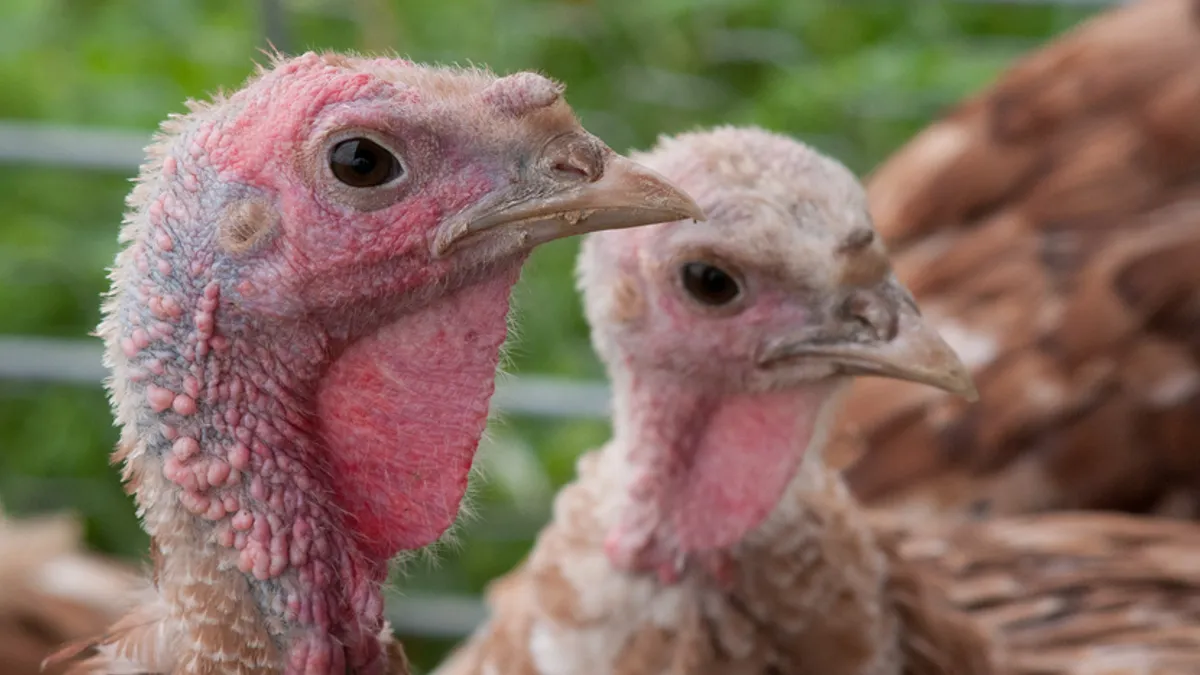Dive Brief:
- Cargill is testing blockchain technology that will allow consumers to trace their individual Thanksgiving turkey from the store where they bought it to the farm that raised it, according to the Wall Street Journal. This is the same technology behind bitcoin, and cannot be changed or removed.
- Cargill’s Honeysuckle White brand turkeys will have a code on their packaging that consumers can text or enter into HoneysuckleWhite.com, which will link them back to one of four Texas farms involved in the pilot program. These birds will be primarily available at stores in Texas.
- The cloud-based blockchain system could be faster, simpler and more effective than the food industry’s current framework, which involves multiple software systems and paper records, according to some food company executives.
Dive Insight:
Food traceability is no longer an option for manufacturers — it's a requirement. Cargill's traceable turkey initiative delivers on this consumer demand just in time for the holiday season, which could serve as a lucrative marketing strategy.
But this investment comes at a cost. While the Minnesota-based protein giant hasn't released any firm numbers on the price of the new program, between acquiring the blockchain technology, updating packaging and developing user-friendly website and mobile apps, it's safe to say the undertaking wasn't cheap.
Cargill's Honeysuckle White brand is the first and only major turkey brand to pilot such a program, which could help its birds stand out at the grocery store ahead of Thanksgiving shopping. If consumers respond positively, Cargill may consider expanding the program to other types of protein beyond whole turkeys. Cargill already has the rights to the blockchain technology, but applying the same traceability to farms to individual wings, thighs and breasts could be cost prohibitive and difficult to execute.
Still, it could be something to consider. Consumers have shown they are overwhelmingly interested in more transparency in food products, according to a new study from Response Media. Almost all respondents said they would pay more for more transparent products — 99% for fresh food and 98% for packaged food.
Recent research has predicted that the food traceability market will be worth $14 billion by 2019. When it comes to their meat, consumers especially want to know if it's antibiotic-free, hormone-free, grass-fed, natural, and organic. There are serious benefits for companies that make the switch to be more transparent. A year ago, Label Insight found manufacturers who adopt "complete transparency" would be rewarded with loyalty of about 94% of consumers.
Other manufacturers have made these kinds of initiatives work. Earlier this year, Hershey partnered with Sourcemap to show consumers where the components of Hershey's Milk Chocolate with Almonds and Reese's Peanut Butter Cups came from. Additionally, freeze-dried fruit company Crunchies includes this traceability information on all of its packaging.
Blockchain technology could become the new, better way for food manufacturers to increase traceability while improving food safety and reducing waste. If Cargill's traceable turkey program is a success, it could eventually start a trend in the protein space and beyond.














